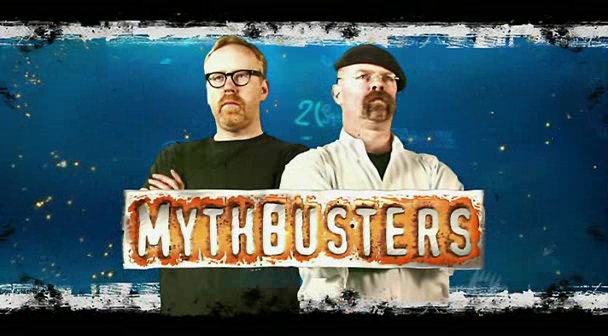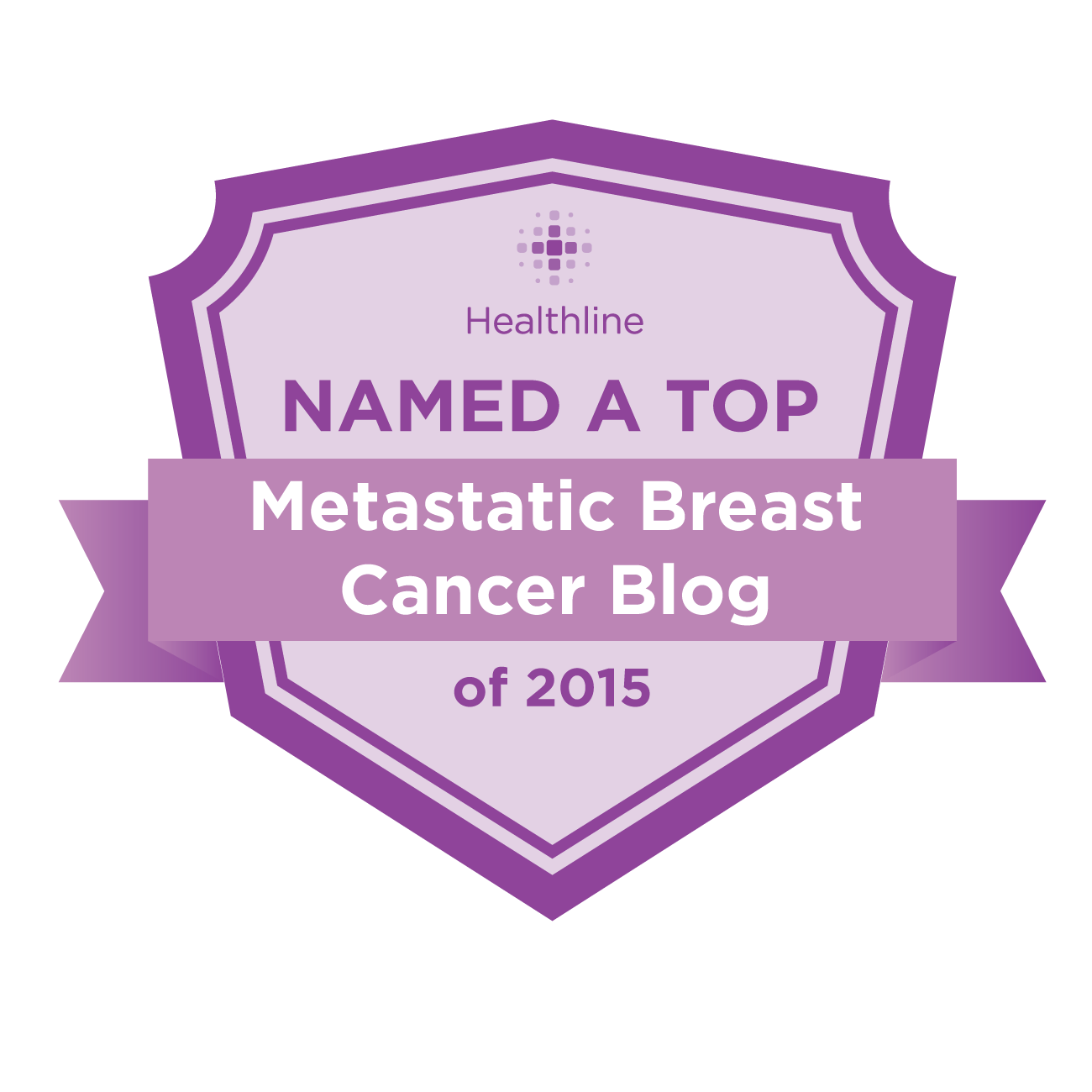Since I've yet to see Jamie Hyneman put on a pink beret and take this subject on, I guess I have no choice. I'm always the one who has to do the dirty work. I have whined innumerable times (as my husband will attest): if I don't do it, it doesn't get done.
So, what do I want to do? In honor of breast cancer awareness month, I figured I'd take it upon myself to make you all a little more aware about some of the myths surrounding breast cancer.
The first myth I would like to bust is the famous statistic. You have all heard it.
1 in 8 women will get breast cancer.
Let me tell you a true story. Somewhere this Pink October, a group of forty 20-something women will gather, with plans to volunteer for their favorite breast cancer charity. They will be exhorted to look around the room, and will be told in ominous tones that 1 in 8 of them will be diagnosed. Wide-eyed with sympathy and fear, their eyes will wander from woman to woman, wondering who the unlucky five are.
Which women will be breastless and bald in the next few years? Will it be them?
The likely answer?
Zero.
That 1 in 8 statistic is a lifetime risk statistic.
Now, if you are age 90, sitting in your wheelchair in a nursing home dining room with 40 other 90 year old women, all of whom are hoping today is chocolate pudding day - that's the time to look around and wonder who will get it (or has had it). That is when the famous statistic comes in to play.
Here are some facts taken from the SEER database. During 2002-2006, women aged 20-24 had the lowest breast cancer incidence rate, 1.4 cases per 100,000 women. I suck at math, but it appears to me that is not 1 in 8. (I'm not quite sure what to say about that poor .4 woman)
Women aged 75-79 had the highest incidence rate, 441.9 cases per 100,000.
Statistics are difficult for most people to understand, but that 1 in 8 figure is really an average probability for the entire population of women over a lifetime, not a statement about individual risk.
A more meaningful number, although still not accurate individually, would be statistics by decade. A 50-59 year old woman has a 1 in 38 chance of getting cancer, but again, that is across all spectrum of women, including those with the BRCA gene, family history, lifestyle risks, race/ethnicity, reproductive history, socioeconomic status, etc.
The older you become, the more likely you will get cancer - any kind of cancer. Here are some breast cancer incidents by age I found from cancer.gov's site.
- from age 30 through age 39 . . . . . . 0.43 percent (often expressed as "1 in 233")
- from age 40 through age 49 . . . . . . 1.44 percent (often expressed as "1 in 69")
- from age 50 through age 59 . . . . . . 2.63 percent (often expressed as "1 in 38")
- from age 60 through age 69 . . . . . . 3.65 percent (often expressed as "1 in 27")
Why am I busting this myth? Because, I think it's irresponsible to take the scariest one and use it out of context to further a cause. Breast cancer is an awful disease, no question. It can be a deadly disease. We don't need to make it worse by telling lies about an individual's risk - even for a good cause.
The reason why so many woman think they have a 1 in 8 chance of getting breast cancer is most likely due to Pink October and the entire machine of "cause marketing." Without fear and an element of danger, people would be less likely to participate in the big marketing push. If you think you and your loved ones won't get this disease, you might not want to buy the more expensive pink cans of soup, go on the cure runs, and donate. It's human nature - we are interested in helping when we feel it's close to us.
Knowing human nature, some marketing guru took a lifetime risk statistic and turned it into a frightening mantra with no context, "1 out of 8 women will get breast cancer" to make it seem that cancer is right around the corner, and you could easily be next. If you think you are next, you are more likely to help.
I realize that most of the people who read this blog are the ones who have had that lightening strike - either them or their family or friends. Even misused statistics make sense when you are one of the chosen few, and you might be shaking your head right now. But, because I got it at age 51, because it's real to me, because I'm unlucky - it still doesn't mean one out of eight 51 year olds will get it. It doesn't even mean 1 in thirty-eight 51 year olds will get it.
In that room of forty 90 year olds who are enjoying their chocolate pudding, also keep this in mind: 7 out of 8 of them have not had breast cancer.
By all means, help out if you so desire. Run, walk, donate. But next time you hear a flippant statistic like that, think critically and remember the Mythbusters.
1 in 8 women will get breast cancer?
I just wish I'd gotten to blow something up.
~~~~~~~~~~~~~~~~~~~~~~~~~~~~~~~~~~~~~~~
More on statistics:
To calculate your risk of getting breast cancer, use this assessment tool. I did the questions as I would have answered them on my 50th birthday. My odds?
5 Year Risk
- This woman (age 50) 1.1%
- Average woman (age 50): 1.3%
Explanation
Based on the information provided (see below), the woman's estimated risk for developing invasive breast cancer over the next 5 years is 1.1% compared to a risk of 1.3% for a woman of the same age and race/ethnicity from the general U.S. population. This calculation also means that the woman's risk of NOT getting breast cancer over the next 5 years is 98.9%.
Lifetime Risk
- This woman (to age 90): 9.9%
- Average woman (to age 90): 11.2%
Explanation
Based on the information provided (see below), the woman's estimated risk for developing invasive breast cancer over her lifetime (to age 90) is 9.9% compared to a risk of 11.2% for a woman of the same age and race/ethnicity from the general U.S. population.
(I shoulda played the lottery!)
Here is your SEER statistics (and highly readable information) from Cancer.org.
Statistics on Lifetime Risk of developing cancer.
.












That 1 in 8 number is way over expressed. It means nothing. What are my chances of getting cancer a third time? That's all I care about now...
ReplyDeleteI hope you are okay, Caroline
ReplyDelete"During 2002-2006, women aged 20-24 had the lowest breast cancer incidence rate, 1.4 cases per 100,000 women" --- okay, I knew I was unlucky, but I didn't actually realize HOW unlucky! I thought I was like, 1 in 3,000.
ReplyDeleteI have just found your blog and linked you to mine. Reading your figures and wish they were correct or I guess I am just unlucky....my friend and I diagnosed within weeks of each other, both breast cancer...mine has returned for the second time. In between my friends (with BC) dad diagnosed, my dad diagnosed, both with cancer..my friends dad passed away three months ago. When will it ever end? I try to keep my spirits up but chemo comes around all too quickly, another session again on Wednesday.
ReplyDeleteI shall look in again I like your work.
I too didn't realize how unlucky I was, I was 32 when diagnosed.
ReplyDeleteThank you, Ann, for this. I was talking with someone about this yesterday and couldn't reconcile in my mind the 1-in-8 stats for BC and the 1-in-10 stats for ovarian (probably the same type of origin). I wish clarity were the point of the awareness campaigns, not marketing and selfishness. Keep up the great work!
ReplyDelete-Sarah
Thank you Ann!
ReplyDeleteI deal a lot with health statistics - the outcome is that most folks don't understand math & statistics (patients, families, physicians, etc...) and a lot of folks use math & statistics to distort or warp things.
I really think it's wonderful that you've taken the time to make the numbers more realistic - thank you.
That said, when you're the one with cancer, or your dear friend has cancer, or your favorite uncle dies from cancer... the numbers don't make the pain and fear any easier.
Again, thank you...